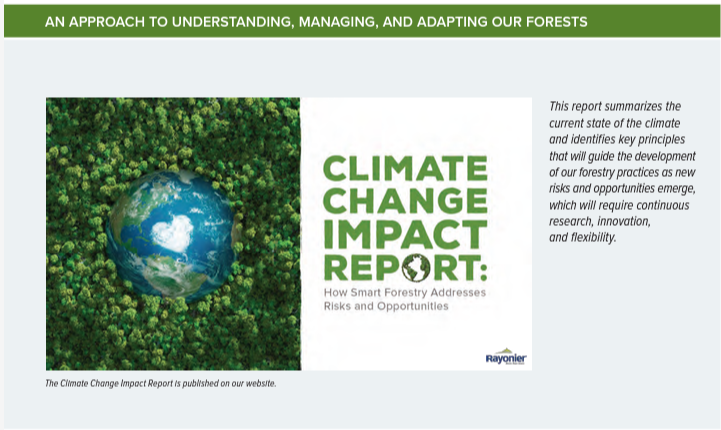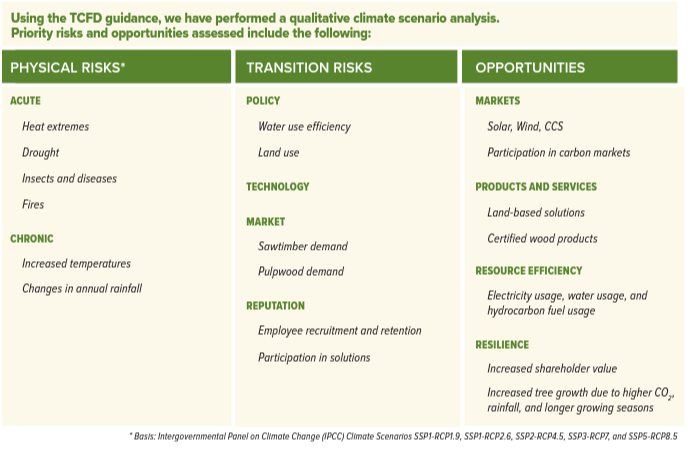Rayonier 2022 Sustainability Report: Climate Change
Risks and Opportunities
Published 09-27-23
Submitted by Rayonier

Climate change is affecting forest ecosystems worldwide, causing shifts in the distribution, abundance, productivity, and health of forests. Our commitment to sustainable forest management requires that we understand both the risks and opportunities posed by climate change to our business, the ecosystems we manage, and society in general.
Our internal research team evaluates climate change at both a global and regional level in an effort to assess the potential long-term impacts on the health and productivity of our working forests, as well as to develop adaptation strategies.
We believe that traditional forest management practices will need to adapt to the climate conditions that will exist in the future as we strive to maintain productive, healthy, and sustainable forests. By implementing climate smart forestry—strategies and practices designed to manage climate change risks—we expect that Rayonier will be better positioned to mitigate the impacts of climate change in the coming decades. This approach requires research, innovation, and flexibility as new risks and opportunities emerge. In developing our climate smart forestry practices, we leverage our in-house expertise, as well as research conducted by external cooperative programs in site classification, forest health, genetics, silviculture, and biometrics.
We assess transition risks to determine potential financial impacts to our operations, and we incorporate these considerations into our strategic decision-making. Our physical risks are assessed in the short-term (2021–2040), medium-term (2041–2060), and long-term (2061–2100) to identify where our timberlands may be exposed, and we develop mitigation plans accordingly. We also monitor weather trends and acute weather events in each of our operating areas in order to assess the potential business impacts and to develop appropriate response plans.
Click here to view Rayonier's Climate Change Impact report, which summarizes the current state of the climate and identifies key principles that will guide the development of our forestry practices as new risks and opportunities emerge, which will require continuous research, innovation, and flexibility.
To learn more, view the full Rayonier 2022 Sustainability Report.


Rayonier
Rayonier
Rayonier (NYSE:RYN) is a leading timberland real estate investment trust with assets located in some of the most productive softwood timber growing regions in the United States and New Zealand. We own or lease under long-term agreements approximately 2.8 million acres of timberlands located in the U.S. South, U.S. Pacific Northwest and New Zealand. We are More than trees because we recognize that our 90+ years of success in the timberland industry comes from our people, an empowering culture and the courage to constantly challenge “the way it’s always been done.” Get to know us at www.rayonier.com.
More from Rayonier

